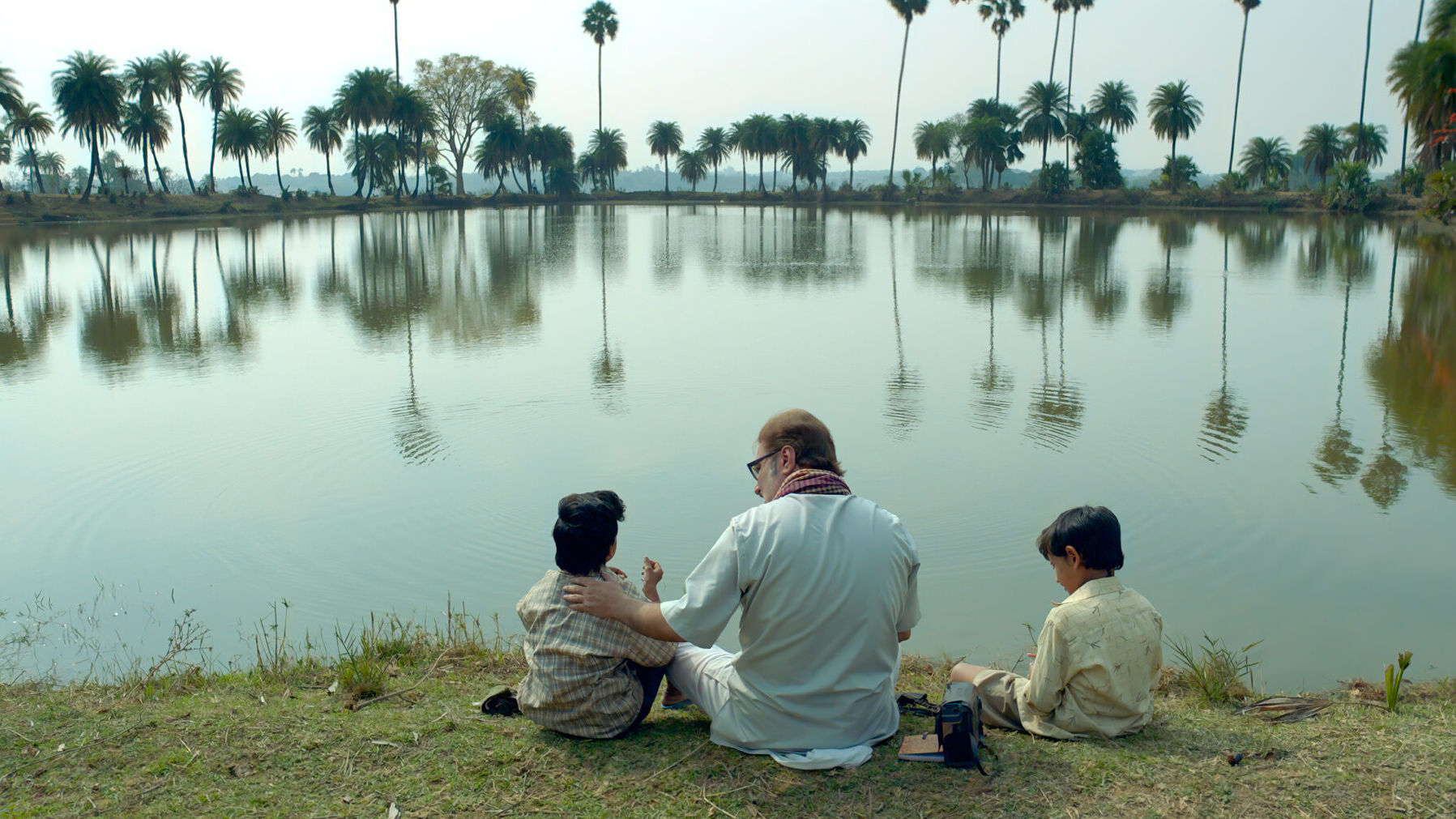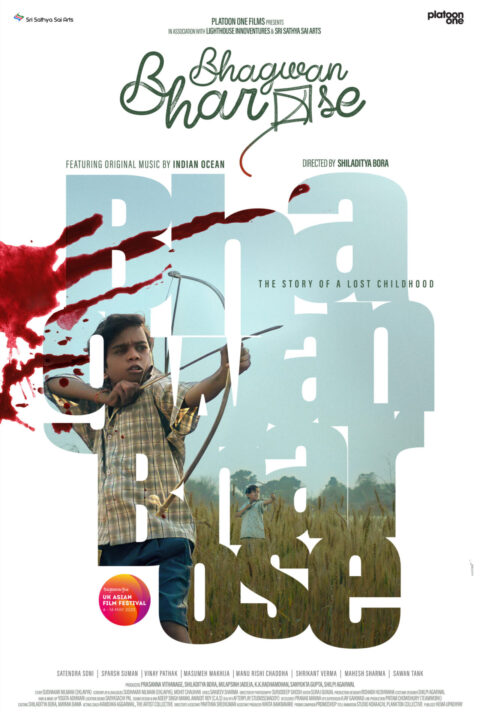Indian director Shiladitya Bora shares a message of optimism in the spiritual coming-of-age film, Bhagwan Bharose (For Heaven’s Sake). Set in a rural yet vibrant village in 1980s India, this independent film leads with heart and uses the resources it has to its highest potential. This is a story about asking tough questions, challenging long-held beliefs, and ensuring future generations have a clear and safe path toward the future.
Bhagwan Bharose tells the story of two young boys navigating a rocky road on their journey of faith, leading to poignant questions and deeply moving revelations. Bhola (Satendra Soni) and Shambhu (Sparsh Suman) engage in a modest lifestyle. They attend a faith-based school, fly kites competitively and participate in religious activities with their parents. A shake-up occurs when a television is introduced into the village, as they have been without outside influence since birth. Although Western advances are foreign to the boys, they readily adapt to this progressive change and are drawn to the possibilities that await them from the TV screen.
From here, the film relies on religious parables to propel the story forward. “Do not commit sin” is a reoccurring message, as is “God is the reason for everything.” Bhagwan Bharose isn’t subtle in the nods to scripture–perhaps too heavy-handed for audiences who don’t consider themselves religious–but the intentions are good. There is a moment when a science vs religion debate plays out between the boys’ school teacher and Bhola. “How can anything hang in the air?”, exclaims Bhola when questioning the fact that the Earth revolves around the sun. The boys must not have gotten to the chapter on gravity yet.
Despite a mild lack of urgency in the pacing of the edit, Bhagwan Bharose is a warm film that may appeal more to the religious crowd than mainstream audiences. There is humor sprinkled throughout, such as when a monkey disrupts the electricity connection to the television set. This humor is balanced by somber moments too, including violence and death that stuns the community.
The devastating effects of violence, especially among children, is the important message director Shiladitya Bora hopes will resonate with audiences. The closing lines of the film are something that we can all agree upon, despite one’s religious affiliation. Atheist, Christian, Hindu, etc., the message is a universal one that we are left to ponder:
“Communal violence results in many deaths around the world.
Children are robbed of their childhoods, displaced, and abandoned by loved ones.
Children are the future, they deserve protection and safety.”
Morgan Rojas
Certified fresh. For disclosure purposes, Morgan currently runs PR at PRETTYBIRD and Ventureland.


